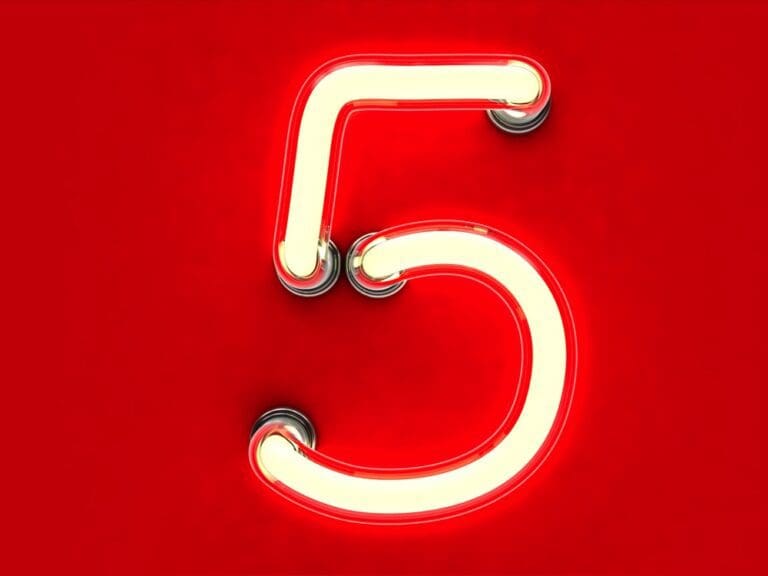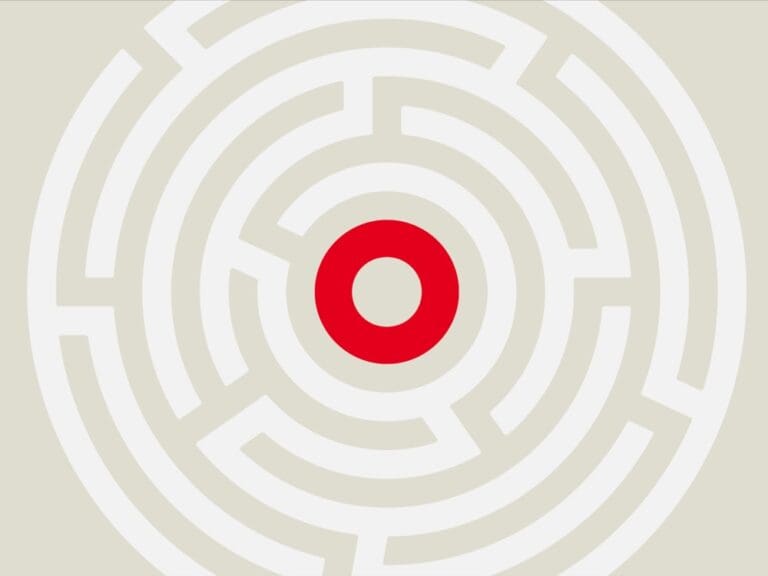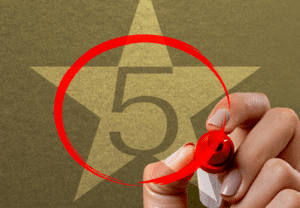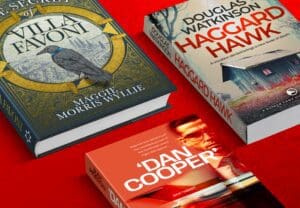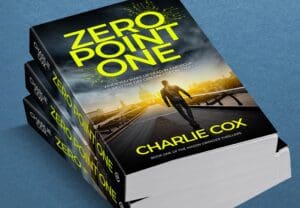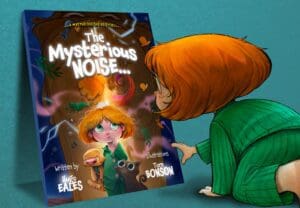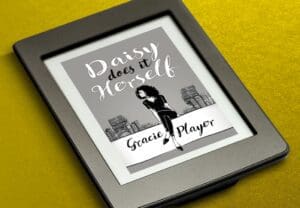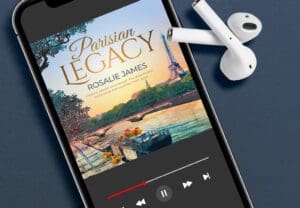
Last 500 years, next few months.
“I know dozens of authors who have had a lot of books published by New York, and they won’t ever take another Big 6 contract since they’ve gotten a taste of the freedom, control, and money self-publishing offers.”
J. A. Konrath
Traditional publishing and self-publishing are at war. The history of this subject goes a long way back — not quite to the origins of language, perhaps, but we are talking about the time a little after the Gutenberg Press and the beginnings of efficient book production before commercial publishers were conceived in any form resembling today’s publishing landscape. It was a time of discovery. Books were written, then printed and bought and sold via publishers who were small and not yet monopolies – a bit like independent publishers. Whoever self-published before Amazon existed, though? Well, we have Jane Austen’s Sense and Sensibility, which our beloved author paid Thomas Egerton to produce. Then there was William Blake, taking control of the entire creative process for some of his most famous works, including Songs of Innocence. Dickens paid to have A Christmas Carol printed by his publisher. While Walt Whitman paid for Leaves of Grass to be printed and got hands-on with the typesetting. When a book needs to get made, it invariably does, one way or another, or as Wally Lamb said:
“If the book is true, it will find an audience that is meant to read it.”
The above cases are a tiny percentage of notable self-publishing stories, and we’re not in the business of cherry-picking some historical successes in order to seduce authors into using our services; we have our own case studies for that. Much more common than these author-celebrity stories are the present-day cases of career authors who you probably haven’t heard of but who have thousands of readers and are selling thousands of books each month and doing very well — taking 100% of royalties and keeping control of their work. But big publishers don’t like these stories, especially since they are becoming quite common.
“Because we self-published ‘Draculas,’ we control the rights. Not just for now, but forever.”
J. A. Konrath
Once books became a popular cultural phenomenon, the wheels of commerce began to turn, the numbers started crunching, big publishing houses naturally formed and are, of course, still with us. This is huge business. The ‘Big 5’ (or 6) are well established groups, arguably described best in the 1911 Encyclopaedia Britannica as:
“…a purely commercial affair that cared more about profits than about literary quality, publishing is fundamentally a business, with a need for the expenses of creating, producing, and distributing a book or other publication not to exceed the income derived from its sale.”
And it is money-making dressed as concern for literary standards, over time, that has given rise to commercial publishers holding themselves in a very privileged and questionably earned position — that of:
“Posing as something good and true, while systematically placing avoidance of even the smallest financial risk over the need for literary diversity and cultural freedom.”
James Willis
This was always going to happen. If you’re going to establish a monopoly over book production and sales, books will need to be appropriately commodified and efficiently distributed. But this bad news has been accepted as ‘the way it is’ for so long; many people don’t see the problem, but as best-selling thriller novelist Barry Eisler describes: “…publishers are currently running their business in a way that punishes both their end-user customers (readers) and their providers (authors). This was sustainable when publishers faced no meaningful competition. They do now, and will have to adapt or die, because yes, more and more authors are eschewing the legacy model in favour of self-publishing…” The problem is that this has gone on for centuries under the guise of diligent gatekeeping with an eye on quality, but ought it not be readers that are the gatekeepers of literature? Why do we need a few big companies to hold our hands and decide upon a selection of books for us to choose from? Clearly we don’t. Their choices are profit-led.
“Of course, people say maybe there are some self-published books out there that shouldn’t be out there. Well, it’s the same with conventional publishing.”
Patti Davis
What we’re doing here is looking at the identity of publishing, whether it be self, traditional, indie, etc. and trying to truly define what works for authors and what is relevant today. We have many clients who are in the process of going from debut ‘self-published’ authors to confident indie-publishing houses. We also work with authors who are writing their first title and are doing so with confidence, pride and the knowledge that indie-publishing is not problematic in terms of validity or relevance. In fact, when approached studiously, it is the most relevant way of freeing the literary aspirations of writers with whom commercial publishers (often wrongly) do not have the vision to engage.
“For a long time now, self-publishing has been dismissed as an act of vanity — mainly by frightened executives in publishing houses, who hold up terrible examples of self-published works and say, ‘See? This is why we exist.’”
Hugh Howey
However, there are also many ‘self-publishing companies’ who do not respect the art of indie publishing. These companies represent an odd (and pointless) mid-way point between the traditional publisher and the true indie-services company, charging for services, taking a cut of profits, and often keeping control of intellectual property. Their design and distribution processes are often not bespoke, so sales tend to be low or non-existent. But these organisations are thankfully becoming fewer and weaker as savvy ‘authorpreneurs’ take more control of their work and are not fooled into ‘affiliate’ or ‘partnership’ deals which offer rudimentary box-ticking services disguised as publishing. What’s really required (and, yes, big publishers get this exactly right) are bespoke, market-led services which are tailored to individual authors, books and demographics. Simply put, talented authors need to partner with talented designers, editors and distributors. Fortunately, there is light in this area.
“There is only one school of literature — that of talent.”
Vladimir Nabokov
Indie publishing can be seen now to be maturing nicely. Companies like Spiffing Publishing fight hard to help authors shake the residual stigma attached to (heaven forbid!) publishing one’s own books by offering better-than-big-publisher services and support. And so on, we march into 2019 with our heads held high, wielding our world-class indie-published books as weapons against commercial publisher prejudice and scam companies who want to ‘share’ your success.
“Authors today need a publisher as much as they need a tapeworm in their guts.”
Rayne Hall
The opportunities are enormous, but there is still a lot of progress to be made if we are to continue to redefine indie publishing as the relevant creative platform for good authors and one which is supported by ethical companies who deliver genuinely valuable services. This can only be a good thing; if we’ve come this far, how will things look in one year or ten? It looks like it’s shaping up to be an incredible time for authors and readers. This doesn’t necessarily mean that big publishers will be irrelevant; they just need to be different, better and more ethical, which is a lot to ask of the archaic industry. And, OK, a traditional deal might be an attractive prospect, but even the path to getting that can now strategically include self-publishing:
“In 1998, I self-published online in order to get a traditional deal.”
M. J. Rose
There is a lot to celebrate. Author empowerment is real, and authors are finally getting access to the services they need and deserve in order to do justice to their work. All of us at Spiffing Publishing are genuinely proud to be leading this fight for empowerment with our brilliant, talented clients, and it feels as if the beginning of 2021 is going to be the start of something truly revolutionary.
For some recent indie success stories, check out E L James, Andy Weir, Amanda Hocking, Rob Dirks, Orna Ross, Lindsay Buroker and Ian Sainsbury.


